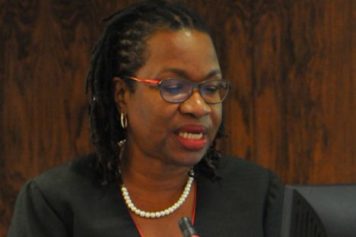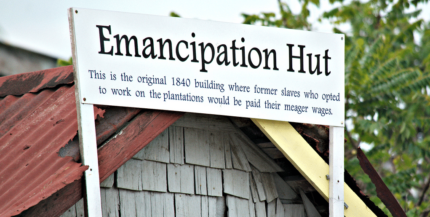Former Barbados prime minister Owen Arthur says while the decision in 1989 to transform Caribbean economies into a single market and economy was one of the most momentous decisions in the history of the Caribbean, “it was a transformation that was never going to be easily achieved.”
Delivering the guest lecture at the Institute of International Relations at the St. Augustine campus of the University of the West Indies (UWI) on Monday, Arthur said the transformation was therefore going to be more taxing if not attended by clarity of purpose, and the determination to hold to a steady course come what may.
Speaking on the topic “Caribbean Regionalism in the Context of Economic Challenges,” Arthur, who at one time had responsibility for the Caribbean Community (CARICOM) Single Market and Economy (CSME) portfolio within the quasi CARICOM cabinet, said the creation of the CSME was intended both to be an agency by which the region created indigenous opportunities for its development and at the same time serve as the principal vehicle by which the regional economy would be integrated into the evolving and dynamic global economy.
“In agreeing to reconstitute itself as a Single Market and Economy the region, for the first time, sought to rest its own development and its relationship with the rest of the world on the embrace of the economic ideology of liberalization.
“In this regard, the creation of a Single Market was to take the form of removal of all of the constraints on the movement within the region of goods, services, labour, capital and the creation of enterprises over centuries,” said Arthur, a three-time prime minister who lost office in 2008.
He told his audience that this process was however intended to be undertaken in accordance with particular principles and design features.
“To be precise, in reconstituting itself as a single market, the instruments of integration were to be designed to facilitate deeper, broader and faster liberalization between individual economies in the Caribbean than the region would agree to in its bilateral or multilateral agreements and relationships,” Arthur said, noting that it also meant that the region had to be prepared to venture into areas for which there was no provision in its previous attempts at integration such as labour mobility.
But he noted that in order to be relevant, the region had to embrace and incorporate into its own program of integration protocols pertaining to economic disciplines for which there are no multilateral agreements such as investment.
Read More at Caribbean360



